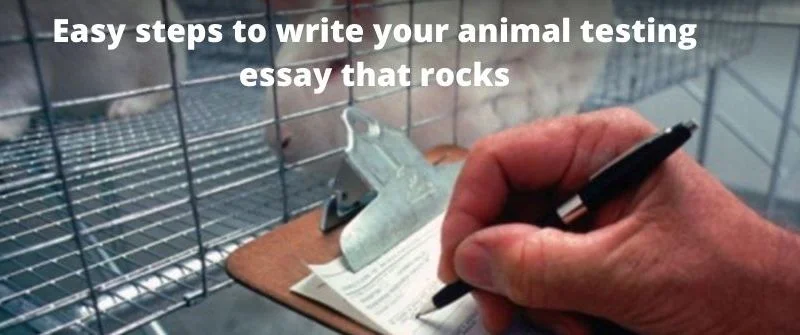How to Write a Peer Review Essay: Guidelines for Students
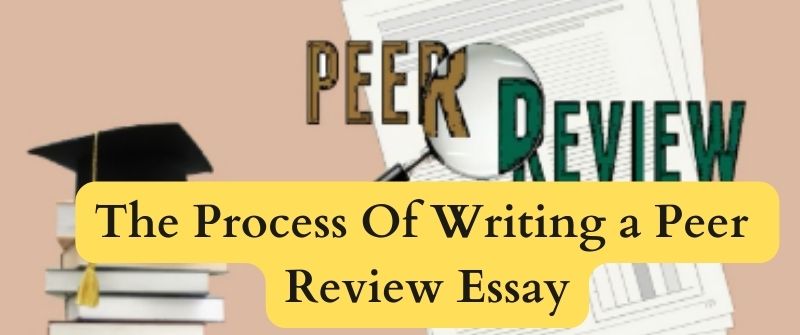
Peer review, an essential component of the academic and scientific world, is a structured process where scholars evaluate and offer feedback on each other’s work. It ensures quality, accuracy, and credibility in research and written materials.
Let’s explore the art of crafting a peer review essay, providing insights into the best practices to offer constructive criticism and foster academic growth.
The Process of Peer Review
1. Prepare for Peer Review
Peer review is a crucial step in the academic and scientific community that ensures the quality and credibility of research and written work.
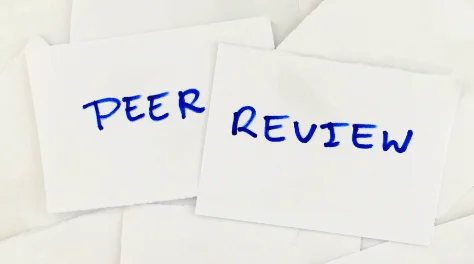
To prepare effectively for peer review, choose peer reviewers who have expertise in the subject matter and are familiar with the standards and expectations of the field.
Their insights will be more valuable and relevant.
Establish clear guidelines and expectations for peer reviewers.
Define the review’s focus, whether content, structure, or grammar, and provide a timeline for feedback. This clarity will lead to more meaningful critiques.
2. Conduct the Review
The review process begins after selecting your peer reviewers and setting the expectations.
Assess the overall structure of the paper. Ensure the introduction provides a clear thesis statement and the body paragraphs follow a logical sequence. Look for appropriate transitions between sections and a well-organized conclusion.
Examine the clarity of the writing. Check for concise and compelling language, appropriate sentence and paragraph lengths, and coherent connections between ideas.
Evaluate the use of evidence and examples to support the arguments. Verify the credibility of sources and the relevance of the information presented. Ensure that citations and references follow the appropriate style guide.
3. Provide Constructive Feedback
Effective feedback should balance positive and critical comments to foster growth and motivation.
Start by highlighting what the individual did well, acknowledging their strengths and achievements.
Be specific, offering examples to make your praise meaningful. Then, gently introduce areas for improvement or concerns, framing them as opportunities for growth.
Avoid using overly negative language and focus on actionable suggestions for improvement. Maintaining a respectful and empathetic tone ensures the recipient doesn’t feel demotivated or attacked.
Overall, constructive feedback should inspire confidence and provide a clear path for advancement, encouraging individuals to take positive steps toward self-improvement.
4. Write the Draft Review
- Start with a salutation and address the reviewed individual or entity.
- Begin by briefly summarizing the purpose of the review and the subject matter under evaluation.
- Provide specific positive feedback or commendations, highlighting achievements and strengths.
- Gently introduce areas for improvement or concerns, offering constructive criticism with clarity and tact.
- Offer suggestions or actionable recommendations for addressing the identified issues.
- Summarize the key points discussed in the review.
- Express gratitude and positivity, encouraging the recipient to use the feedback for growth and improvement.
- Sign off with a polite closing.
5. Polish and Proofread
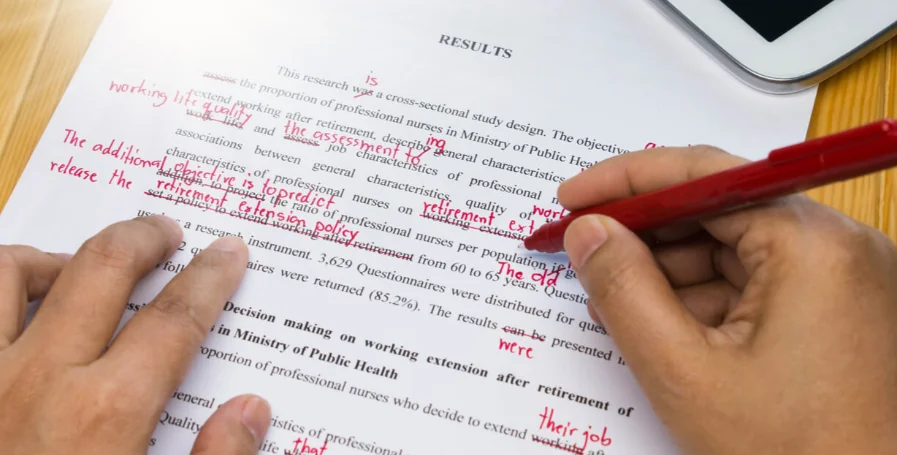
Polishing and proofreading are crucial steps in refining written work. Start by reading your text slowly and attentively, checking for grammatical and spelling errors.
Pay close attention to punctuation and sentence structure. Ensure that your ideas flow logically and cohesively with clear paragraph transitions.
Look for consistency in style and formatting. Reading your work aloud is also helpful in catching awkward phrasing or inconsistencies.
Take a break before proofreading to see the text with fresh eyes. Additionally, consider asking someone else to review your work, as a new perspective can uncover issues you have missed. These steps will enhance the overall quality of your writing.
Benefits of Peer Review in Academic Writing
Peer review is a fundamental component of academic writing, offering a range of benefits that contribute to the growth and development of scholars and their work.
Here are three key advantages of peer review in academic writing:
Improving Writing Skills
Peer review provides an invaluable opportunity for writers to receive feedback on their work from their peers, allowing them to identify areas for improvement in their writing.
Reviewers can point out clarity, coherence, grammar, and style issues, helping authors refine their writing skills.
Through learning from peers’ feedback, writers can address weaknesses and strengthen their ability to convey complex ideas effectively. This iterative process of revision and critique leads to higher-quality academic writing.
Enhancing Critical Thinking
Engaging in peer review encourages scholars to think critically about their work as well as the work of their peers.
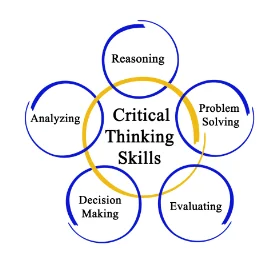
Reviewers must assess the validity of the author’s arguments, the strength of evidence, and the overall coherence of the paper.
Mostly, this process sharpens critical thinking skills, necessitating the ability to analyze and evaluate the content, identify logical fallacies, and propose solutions or improvements.
Authors and reviewers enhance their ability to engage in rigorous, evidence-based academic discourse by participating in this evaluative process.
Fostering Collaboration and Community
Peer review promotes a sense of collaboration and community within the academic world. It encourages scholars to engage with one another’s work, share insights, and build upon existing knowledge.
Reviewers and authors form a symbiotic relationship where both parties benefit from exchanging ideas.
This sense of community extends beyond the review process and can lead to collaborations on research projects, co-authored papers, and ongoing dialogue within the academic field.
It also instills a culture of constructive critique and mutual support, which is vital for maintaining the integrity and quality of academic research.
Tips and Best Practices in Peer Review
1. Anonymity vs. Transparency in Peer Review
Anonymity can promote honest feedback, but transparency builds trust. Some journals use a hybrid approach, allowing authors to choose the review model.
Regardless of the model, professionalism and constructive criticism should always be maintained.
2. Ethical Considerations in Peer Review
Confidentiality is crucial; don’t share or discuss manuscripts without permission. Declare any potential conflicts of interest. Avoid personal bias or discriminatory comments.
3. Being Too Critical
Balance criticism with positive feedback. Focus on improving the work, not tearing it down.
4. Missing the Big Picture
Look for overarching themes, alignment with the field, and the paper’s contribution. Stay calm in minor details at the expense of the paper’s main ideas.
5. Strategies for Revising Based on Feedback
Take time to digest feedback and avoid an immediate emotional reaction. Prioritize feedback points and address them systematically. Seek clarification if feedback is unclear.
6. Knowing When to Accept or Reject Suggestions
Assess feedback against your paper’s goals and the expertise of the reviewer. Use your judgment; not all feedback needs to be implemented.
Peer Review in Different Disciplines
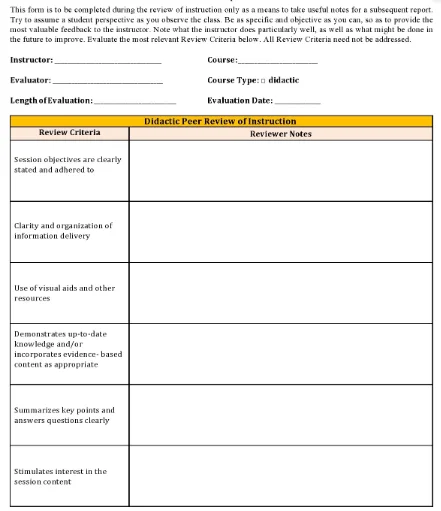
Researchers submit their work to scientific journals, and experts in the field assess its methodology, findings, and significance.
Mostly, this helps filter out flawed or irrelevant research, ensuring only credible, accurate, and novel contributions are published.
The process often follows a double-blind model, where both author and reviewer identities are concealed.
Peer review in the humanities and social sciences plays a crucial role in evaluating the quality and relevance of academic work.
Scholars submit their manuscripts, which undergo review by peers with expertise in the subject area.
The focus is on assessing the paper’s argument, methodology, and contribution to existing knowledge.
Unlike the anonymous nature of scientific research review, the humanities and social sciences often in single-masked blind or open peer review, where the reviewers’ identities are known to the authors.
Conclusion
Writing a peer review essay is a valuable skill that fosters academic growth and the advancement of knowledge.
Additionally, this process, characterized by objectivity, constructive feedback, and ethical considerations, ensures the quality and credibility of academic work.
By critically evaluating fellow scholars’ contributions only help them improve their writing and rese and enhance our own abilities in critical thinking and analysis.

Josh Jasen or JJ as we fondly call him, is a senior academic editor at Grade Bees in charge of the writing department. When not managing complex essays and academic writing tasks, Josh is busy advising students on how to pass assignments. In his spare time, he loves playing football or walking with his dog around the park.



